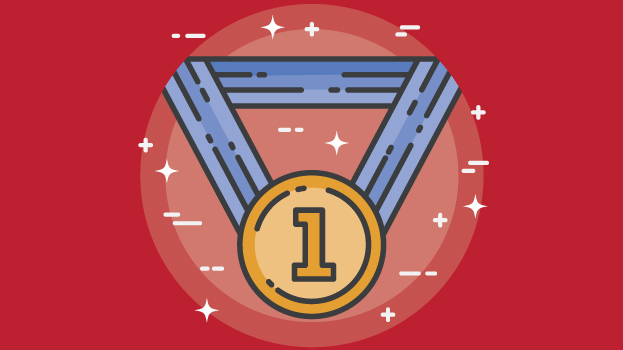Agility is becoming quite the buzzword in the HR space. We hear and read about best practices and we would all love to work in agile workplaces. But what exactly does a company need to be considered ‘agile’?
On a sunny Tuesday morning, we met with Yusuf Okucu at the Vistaprint office in Barcelona to hear more about the Talent & Experience Insights Team he is leading.
Over the past few years, Vistaprint has adopted an agile mindset across the organisation including creative, marketing, and even talent teams.
In this podcast, Yusuf tells the story of how the Talent & Experience Insights Team adopted an agile mindset in the way they work and how they gather Employee Insights to help transform Vistaprint into a place that inspires and supports their teams to deliver their best work to each other and to their customers.
Listen below to discover the actions Yusuf and his team have implemented to make sure that Vistaprint remains an attractive employer to its employees and a great brand to its customers.
For the busy bees out there, we’ve condensed the podcast into a short and sweet transcript below.
Hi Yusuf, welcome to our Grow Your Own Way podcast. Thank you for making time. At Polyglot Group, one of the many services we offer is Talent Acquisition. As a consultant, we network with a lot of different talents and professionals and I get a lot of different opportunities to hear from what they want and what they are looking for in a company.
What strikes me is that very often it’s not about a salary, it’s not about what they want to do. It’s actually about the company culture; they want a modern, forward- thinking company where they take action. And instead of being a reactive culture, being a proactive culture.
So we’ve heard you talk a couple of times about agility, and we wanted to share your knowledge and experience with our network and listeners.
Can you tell us a little bit about yourself, about Vistaprint and the organisation?
Yusuf: Sure, thanks for having me. It’s a pleasure being here today. A little bit about myself, I’m Belgian/Turkish, I live here in Barcelona and work with Vistaprint for about 4 years now.
I lead a team called Talent & Experience Insights Team. It’s actually one function that is part of the broader talent and experience transformation team which is basically the equivalent of an HR function in more traditional organisations.
Vistaprint has been founded by Robert Keane 23 years ago and today we are over 7000 employees in over 12 countries and here in Barcelona, we are around 240 employees with more than 40 different nationalities.
You are working in a team which is called the “Talent & Experience Insights” team? It’s a long title, can you tell us a little bit more about it?
Yusuf: Sure, it’s a team that has been formed a little bit over a year ago at Vistaprint. It is first and foremost a global team, all of our roles in the team are global. And what we specifically do is, we focus on the collection and the interpretation of a workplace and behavioural trends that are ultimately linked to increasing the overall employee experience at Vistaprint.
We basically observe and analyse what people say. Whether we get the info from surveys or focus groups. We try to understand what people are doing and saying but also how they are behaving.
“One thing is what you say you could do, and what you ultimately do.”
So we want to make sure we have a good understanding of all of that. We do that in collaboration with the rest of the talent and experience teams. We work with talent acquisition teams, with product teams, teams that are focused on specific products that are transformative experiences like performance and feedback. The talent technology and the talent services team as well.
Can you give an example of a project that you are doing right now, just to get more of an idea of what you are doing?
Yusuf: Let me explain first a little bit about how we are organised. We have three different pillars that aim at increasing the overall employee experience.
The first pillar is Internal insights. That is what we call the internal voice of the employee. Making sure that we analyse and generate insights internally all over Vistaprint.
The second one is External Research and Insights. Making sure that we understand, what are the best practices on the market? What are other companies doing in terms of specific initiatives around the employee experience? It’s always making sure that we benchmark ourselves. That we understand what has already been done there so that we don’t necessarily start from scratch. Maybe there are ideas that we can incorporate within Vistaprint.
The third pillar is Experiential Labs. Those are actually labs that we run on a small scale, that we try to learn from so that we can decide whether or not we want to make it a transformational experience for our 7000 employees across 12 countries.
So with the external research, you mentioned that you are a very global team. I imagine that you do your research all over the world.
Are there some countries that are more forward-thinking and advanced in this field?
Yusuf: I think it really depends on the specific topic that you are looking out for. I have found personally, the US and North America or Anglo-Saxon countries a little bit ahead of the game, compared to other European countries. This being said,
“It’s more so the mindset that you bring than the country you are from.”
So you could have very innovative foreign organisations in Madrid or Berlin, regardless of the country you are from. What we try to look at is not just the studies by countries, but studies by industry, aspirational organisations that have practices that we would consider very innovative. For instance, organisations that have gone through an agile transformation on a large scale. There are a number of those. They are not necessarily US-based. Spotify is a good example for instance. Some of them are US-based or have their roots in the US, but are global companies like Airbnb. And I think a lot of those companies have an influence on our thinking and the way we have shaped our experience product.
Have there been some companies that you have a partnership with or is it pure researching and reading whitepapers?
Yusuf: We do talk, obviously. Part of that external insights and research is making sure that you talk to other companies and that you exchange ideas. There are different levels for us to do that, what we tend to do is try to research more based on materials that are available, things that companies have been publishing, conference materials. We try to go there first before actually engaging in conversations.
One example is what we are doing, we are measuring the Employee Net Promoter Score. The ENPS score is something that some companies have started measuring 2-3 years ago and is becoming more of a trending topic. One and a half years ago the question emerged at Vistaprint:
“How do you know what you are doing is positively impacting the overall experience?”
What we did is benchmark ourselves. We did an external research piece and we talked to other companies. What are you guys doing? How do you measure that? Is it qualitative, quantitative? It turns out to be part of both.
Ultimately it has helped us in shaping the way we wanted to think about how we want to measure the success of our talent and experience transformation. So we have introduced that metric over a year ago now and we are measuring it on a quarterly basis for all of our 7000 team members. It’s just a one question survey.
“The likelihood of you recommending Vistaprint as a great place to work for.”
Depending on your answer there is a specific formula that is well known for the net promoter score that will give you an idea of how your company is performing from an experience perspective versus other organisations.
Imagine a company in the market that is not that advanced yet. In the early phase of becoming an agile organisation.
What would be the number one tip you could give them?
Yusuf: There are a few, but to be realistic, Vistaprint has also been in a transformational journey for 5 or 6 years more or less. And initially, we also had the same question: Where do you start? There are so many things out there and you do want to start somewhere.
What I would say is, get an external perspective.
I would recommend, try to make sure to always look outside and understand and learn from other organisations. We started visiting other companies and we wanted to learn how they were shaping their employee experience and understanding how they were creating the culture.
Don’t get me wrong, we didn’t go into those visits by saying we absolutely need to do the same thing. Because each company has its own culture, so ultimately you need to define what works well for you and what doesn’t. But it gives you an idea of how companies are thinking about their culture and how they live their culture. We visited a mix of both, companies that are in our industry but also in different industries. Just to get an idea of how they are shaping their culture, and I would say, visiting other companies is one thing –
“Talk directly to them, reach out on LinkedIn; get educated, read more about the topic.”
Tune in for more as we chat about the Employee Satisfaction Score and the “aha” moment Yusuf experienced in his career that changed his thinking about HR.













 September 18, 2018
September 18, 2018 







